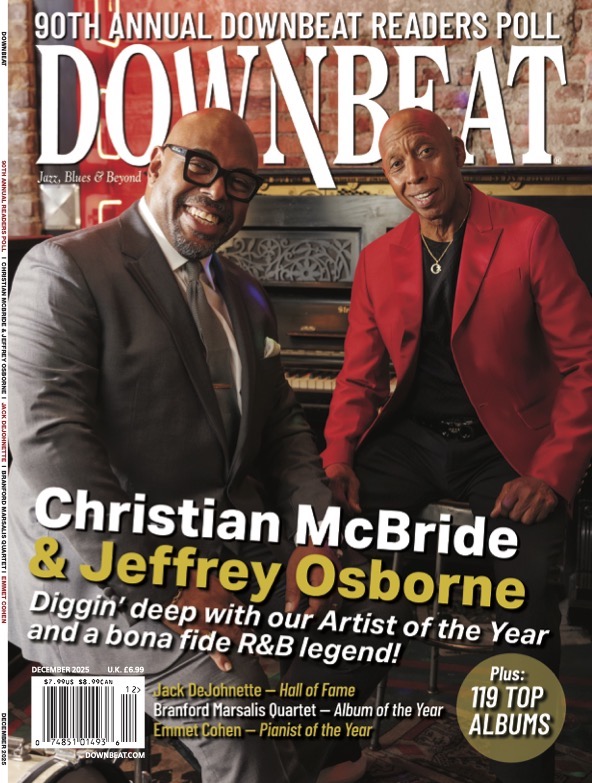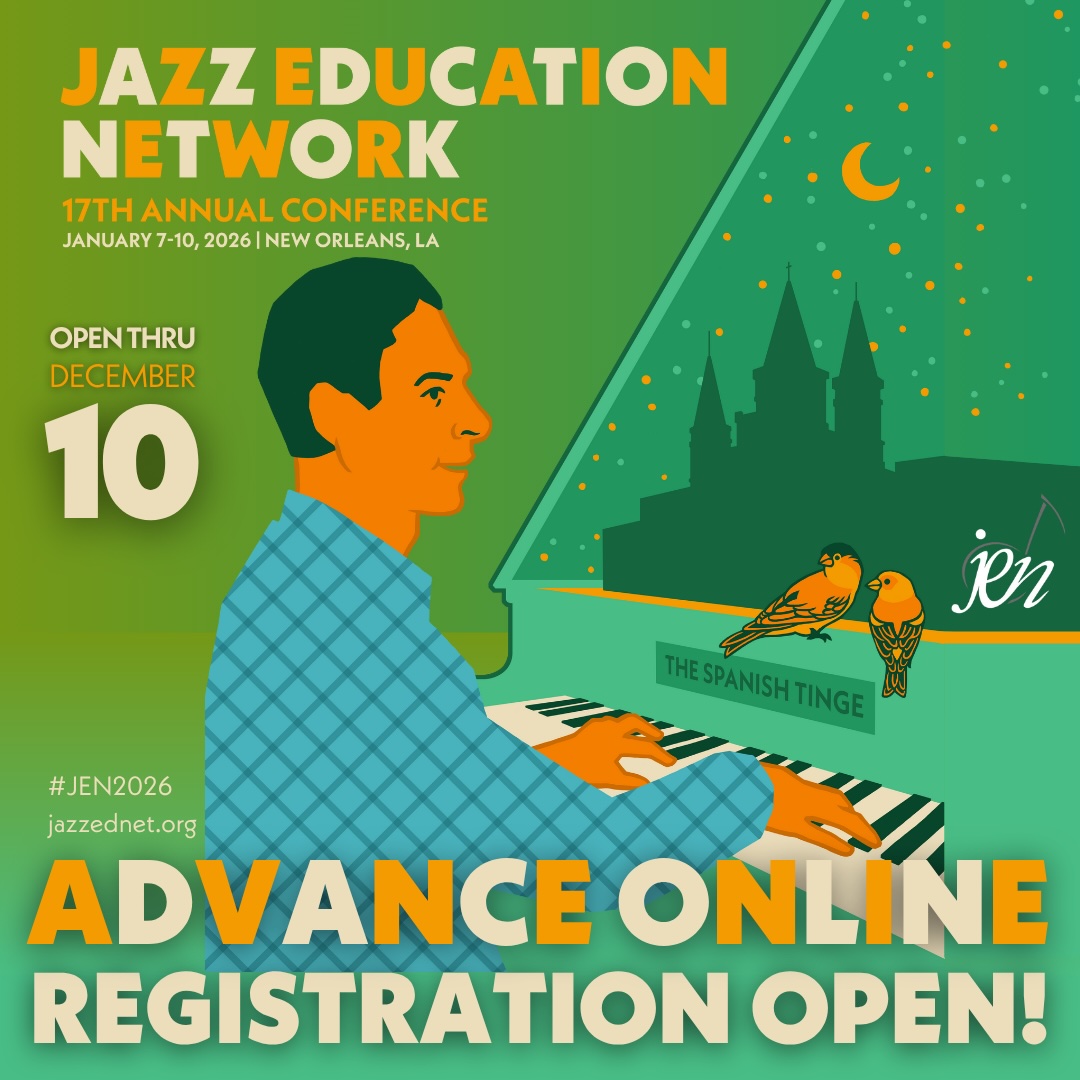Oct 28, 2025 10:47 AM
In Memoriam: Jack DeJohnette, 1942–2025
Jack DeJohnette, a bold and resourceful drummer and NEA Jazz Master who forged a unique vocabulary on the kit over his…
As the buzz around him continues to build, more and more fans in the United States are learning the name Shabaka Hutchings.
The saxophonist/clarinetist/conceptualist, who is at the center of a vibrant, burgeoning jazz scene in London, leads three disparate bands: the unorthodox, risk-taking quartet Sons of Kemet, which just released its rowdy Impulse debut, Your Queen Is A Reptile; the England-meets-South Africa ensemble Shabaka and The Ancestors; and the jazz-to-psychedelic improvisation trio The Comet Is Coming.
Hutchings served as the musical director of BBC DJ Gilles Peterson’s compelling compilation We Out Here (Brownswood), which introduces such young movers on the British scene as tuba player Theon Cross (a member of Sons of Kemet) and explosive tenor saxophonist Nubya Garcia. Hutchings takes the spotlight with his eccentric tune “Black Faces, Black Masks,” where he overdubs clarinet and bass clarinet for a lyrical snake dance that morphs into a wild chase, pounding with grooves.
While Hutchings is widely respected in Britain as a tastemaker and has become a regular at clubs and festivals throughout Europe, he has remained largely unknown in the United States—until now. Early this year, Impulse Records announced that it had signed Hutchings and that it intends to release all of his bands’ projects.
Hutchings has begun to gain recognition and build audiences at New York venues such as (Le) Poisson Rouge, where he played with Shabaka and The Ancestors during the 2017 Winter Jazzfest. The group appeared at LPR again in August during the Jazz Re:Freshed New York Edition, following a show at the Afropunk Festival in Brooklyn.
This year, Hutchings returned to Winter Jazzfest, where he performed three sets, including one at LPR, where he unleashed a scorching, saxophone-effects burst with the synth-driven The Comet Is Coming as part of a British Jazz Showcase presented by Peterson. Two nights later, Hutchings revved up a dance-crazy outing with Sons of Kemet. Then, when Rudresh Mahanthappa’s Indo-Pak band canceled its festival set due to a family emergency, Hutchings was enlisted for a last-minute saxophone jam at Bowery Ballroom with Donny McCaslin and Lakecia Benjamin.
“This has been great because people are getting to see my different sensibilities that fit into different scenarios,” Hutchings said via telephone after returning to London. “Most of the time, musicians come to America and only play in one band, which is limiting. You don’t get to see their other sides. It’s been a negotiation in my life to seek out sounds and give people a taste of my musical life, to make a point without being pushy.”
Those New York performances helped him and his unconventional ensembles make significant headway with audiences in the States—an exciting development that follows some frustrating roadblocks.
“It’s been quite an obstacle for us to play here,” said the tall, amiable bandleader during his latest visit to New York in January. “You have to get the funding to come here, and then there’s getting the proper visa to play, which costs more than what we’d get paid. But those are the hard first steps, and then the word gets out.”
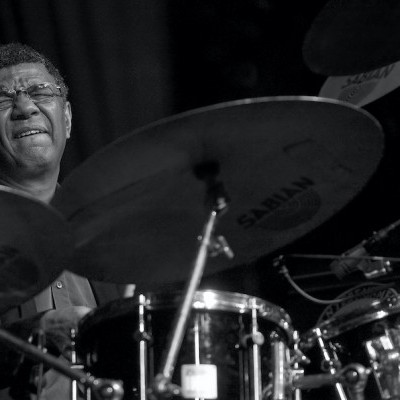
Jack DeJohnette boasted a musical resume that was as long as it was fearsome.
Oct 28, 2025 10:47 AM
Jack DeJohnette, a bold and resourceful drummer and NEA Jazz Master who forged a unique vocabulary on the kit over his…
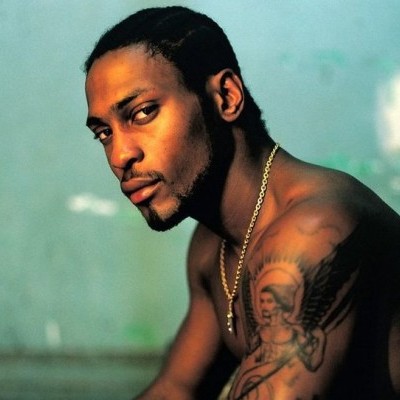
D’Angelo achieved commercial and critical success experimenting with a fusion of jazz, funk, soul, R&B and hip-hop.
Oct 14, 2025 1:47 PM
D’Angelo, a Grammy-winning R&B and neo-soul singer, guitarist and pianist who exerted a profound influence on 21st…
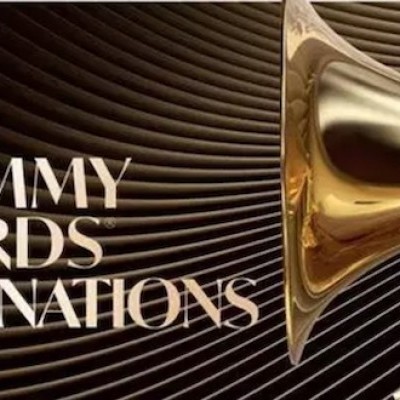
To see the complete list of nominations for the 2026 Grammy Awards, go to grammy.com.
Nov 11, 2025 12:35 PM
The nominations for the 2026 Grammy Awards are in, with plenty to smile about for the worlds of jazz, blues and beyond.…
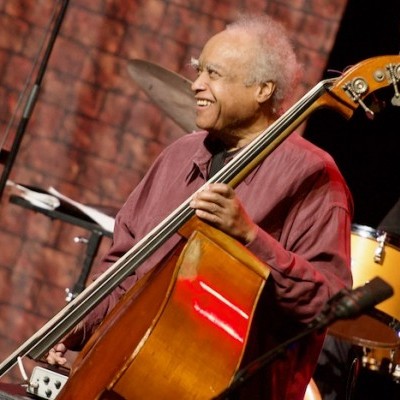
Drummond was cherished by generations of mainstream jazz listeners and bandleaders for his authoritative tonal presence, a defining quality of his style most apparent when he played his instrument unamplified.
Nov 4, 2025 11:39 AM
Ray Drummond, a first-call bassist who appeared on hundreds of albums as a sideman for some of the top names in jazz…
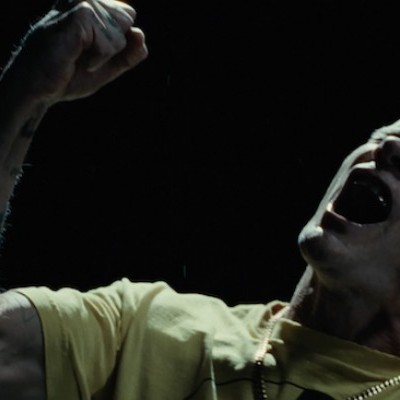
Flea has returned to his first instrument — the trumpet — and assembled a dream band of jazz musicians to record a new album.
Dec 2, 2025 2:01 AM
After a nearly five-decade career as one of his generation’s defining rock bassists, Flea has returned to his first…

